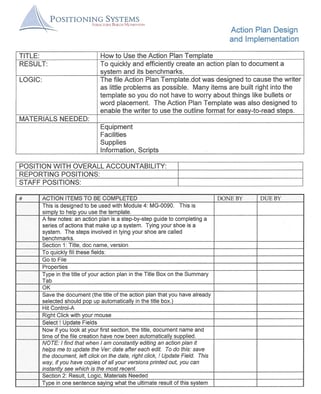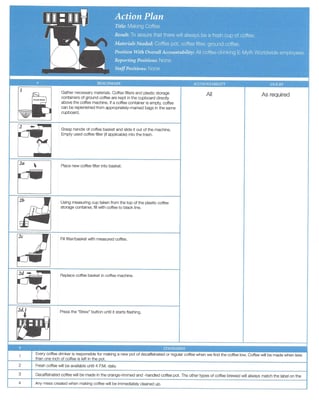What is a system?
A business system is a repeatable process that employees understand and use to achieve a desired purpose. Owners implement human resource, marketing, organizational, administrative, financial, accounting, lead generation, and sales systems.
Several of my customers have been discussing systems in their business. The lack of a system leads to confusion, mistakes, customer complaints and failed communication between employees. If you remember from our discussion from Christine Comaford Orlando Growth Summit presentation: Create Safety, Belonging, Mattering, people are unmanageable.
My ten years as a senior E-Myth Consultant reminds me again of Michael Gerber’s quote, “A manager does not manage people. People are unmanageable. The manager manages the system.”
The problem in many businesses is the system is not defined. When it is defined, it’s often not documented. This leads to people following their interpretation or variation of what should be done. A good system needs standards and quantification. As an example: How long does it take to complete the system? What are the metrics for producing the result? (A system like making a chocolate malt should designate how much ice cream, malt mix, and milk should be used and then how long one would mix this in a blender.)
We suggest four prime characteristics of successful systems:
1. The system must have a clear purpose. What is the desired result of the system?
2. The system must be accountable. Who is responsible for executing each step of the system, at a determined time, in order for the system to accomplish its goal? How will you objectively measure the success of the system?
3. The system must be documented. If the system isn't written down, it may or may not exist in the mind of employees and could be an endless variety of interpretations. If a system isn't described in writing, employees can't be expected to follow it and a potential buyer can't know that it truly exists.
4. The system must be repeatable. If your systems only work if you are there to execute them, they do not meet the standard of "repeatable." If you feel you can't delegate your role in a particular system, that system is not repeatable. Your systems may be dependent on a particular position but they must be independent of any particular person to be easily repeatable.
Working with my customers in the E-Myth coaching approach we provided them with a clear, concise template to document systems.  One of my partners and I created a system to document creating systems which you see here on the left. This is just the first page of the 3 page template on how to document and create a system.
One of my partners and I created a system to document creating systems which you see here on the left. This is just the first page of the 3 page template on how to document and create a system.
The E-Myth had a simple version of this to help everyone understand why to create a system and what goes into one. This is illustrated by the Coffee-Making action plan.
Making coffee should be elementary. Yet frequently at an office the coffee pot is drained and when you want some there’s none available. This system designates as one of its standards that when there is less than one inch of coffee left in the pot, new coffee should be made. It also designates that any mess created will be immediately cleaned up. I’ll bet some of you are thinking that would be a good rule in your office or home.
IF you’d like a downloadable version of the Coffee-Making Action Plan simply click here
Ideally systems should also have a flow chart.  In a action plan as simple as making coffee it’s probably not necessary.
In a action plan as simple as making coffee it’s probably not necessary.
How many times is your business failing to produce the result you or your customer expects? Are you measuring the success your business produces in your deliverables to your customers internally and externally? In order to achieve consistent, predictable results your business requires systems, otherwise you’re reinventing every repeatable process each time you do it. That’s chaos.
Is it time you determine the significant processes in your business and documented them?
Remember your goal: systems create value. Value is a key element in the successful exit from your business.
Why is business such a noble pursuit? We'll explore my feelings and sense on this next blog.






.jpeg?width=150&height=135&name=Hand%20with%20marker%20writing%20the%20question%20Whats%20Next_%20(1).jpeg)

